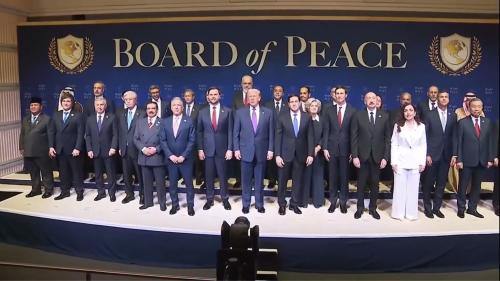By Michael Phulwani
A Conditional Permanent Resident (CPR) who obtained his or her status through marriage to a US citizen or permanent resident must file Form I-751 to remove conditions on his or her residence. The Immigration Nationality Act (INA) and the Code of Federal Regulations (CFR) require the CPR and his or her petitioning spouse (unless deceased) jointly file the I-751 petition. However, INA and the CFR permit the CPR to request a waiver of the joint filing requirement.
Prior to the USCIS memorandum of October 9, 2009, there was no waiver of the joint filing requirement based solely on the fact that a CPR may have entered the marriage in good faith, but he or she is legally separated from the petitioning spouse or is currently on divorce or annulment proceedings. Prior to filing the waiver, the CPR was required to obtain a divorce and file the I-751 with a copy of the divorce decree. The USCIS memorandum of October 2009 outlines the process for handling certain I-751 Petitions that was in place prior to issuance of the memorandum and then explains the process changes being implemented by the memorandum.
Prior to this memorandum, if a CPR was the subject of a final order of removal or was in pending removal proceedings, the service center would relocate the petition to a field office for an interview and adjudication regardless of whether the case involved a jointly filed petition or a waiver request and even if the CPR appeared to be clearly ineligible based on information available to the service center. Where a joint petition was not timely filed, the service center would evaluate the petition to determine if good cause existed for the failure to timely file, and, if no explanation was submitted, the immigration service office (ISO) would send the CPR a request for evidence (RFE) requesting a reasonable explanation of the tardy filing. The CPR’s response would be evaluated, and, if it did not demonstrate good cause, the I-751 petition would be relocated to a field office.
Relocating unadjudicated petitions and multiple filings of I-751 petitions would often cause delays in removal proceedings. Therefore, the memorandum implemented the following process changes.
CPR with final removal order: A CPR with a final removal order has been stripped of his or her conditional permanent resident status and therefore can no longer seek to have the conditions on that status removed. Therefore, if the ISO determines that a CPR is the subject of a final removal order, the ISO is to deny any I-751 filed by that CPR regardless of whether it is a jointly filed or is a waiver request petition. The ISO is instructed that the denial notice must clearly indicate that the denial is based on a final order of removal. The ISO is then to route the file to the US Immigration and Customs Enforcement (ICE) Office of Detention and Removal having jurisdiction over the individual.
CPR in proceedings: Where a CPR is in removal proceedings and USCIS has not adjudicated the I-751 petition, the immigration judge (IJ) cannot review the petition until USCIS first adjudicates it on the merits. Service centers are therefore instructed that an I-751 petition should not be held in abeyance or denied because the CPR is in pending removal proceedings, and, if the IJ has administratively closed the proceedings to await USCIS’ decision on the I-751, the ISO is to expedite adjudication and route the file to the ICE Office of Chief Counsel having jurisdiction over the proceedings.
Untimely filed joint I-751: The memorandum explains that, where a jointly filed I-751 is not filed until after the second anniversary of the CPR’s admission or adjustment, the ISO must determine whether the failure to file timely was based on good cause and extenuating circumstances. Since the I-751 clearly states that a CPA may file an untimely petition only if he or she includes a written explanation for the failure to file a timely petition and a request that USCIS excuse the late filing, ISOs are instructed that, if the CPR did not submit a written explanation for the untimely filing, the ISO is to deny the petition without first sending out an RFE. The denial notice must clearly state that the case is denied based on an unexcused untimely filing, and the ISO must route the file to the appropriate unit for issuance of a notice to appear (NTA).
If the untimely I-751 is accompanied by a request to excuse the late filing, the ISO will evaluation the explanation for good cause and extenuating circumstances. The memorandum explains that the ISO has broad discretion in making this determination and gives as examples of good cause and extenuating circumstances hospitalization, long-term illness, death of a family member, recent birth of a child (especially if there were complications), and a family member in active duty military service.
Multiple filings: The memorandum explains that there are no regulatory limitations on how many times a CPR may file an I-751 petition and gives by way of example a CPR who files a joint I-751 and then subsequently files an I-751 requesting a waiver. However, the memorandum instructs an ISO who encounters an I-751 that appears identical to an earlier denied I-751 to defter to the earlier decision and review the new I-751 for additional evidence that may overcome the previous basis for denial.
The memorandum provides instructions to ISOs in cases where a jointly filed I-751 follows an earlier jointly filed I-751 which was denied, OR waiver request is filed subsequent to the denial of a previous waiver request base do the same ground (termination of a marriage entered in good faith, extreme hardship, or battery or extreme cruelty). In such cases, the ISO is to review the new petition to determine if the CPR has presented additional evidence different from the first petition. If there is no additional evidence, the ISO is to issue a denial notice incorporating by reference the failure to establish eligibility for the requested waiver in the first petition. If the subsequent petition contains additional evidence and the ISO finds that the additional or different evidence fails to establish the bona fides of the marriage or eligibility for the waiver, the ISO is issue a denial notice stating why the evidence fails to establish the bona fides of the marriage or eligibility for the waiver. If the I-751 is denied, the ISO is to route the file to the appropriate unit for issuance of an NTA (assuming the CPR is not already in proceedings).
If a subsequently filed waiver request is based on a different ground that the previous request, the ISO is to evaluate the new petition separately from the previous denial.
Michael Phulwani is a prominent attorney admitted to practice law in New York, New Jersey and India. He practices immigration and nationality laws and visa matters in the USA and abroad. He is a frequent lecturer on immigration laws and co-hosts several TV and radio programs on immigration. In this column, Phulwani will discuss frequent problems relating to immigration legislation and answer questions from our readers. All questions should be forwarded to Michael Phulwani, 888 Maywood Avenue, Maywood, NJ 07607.












